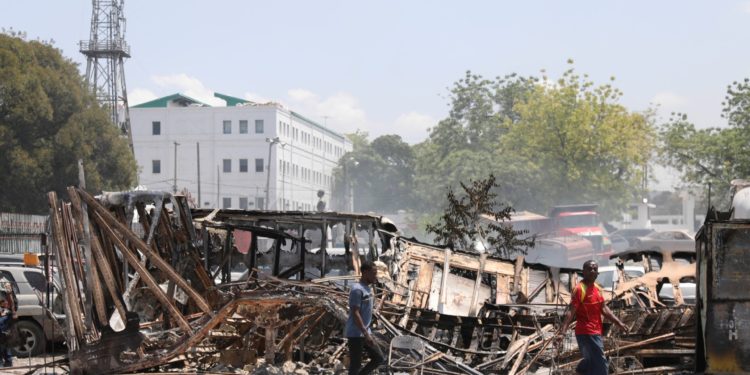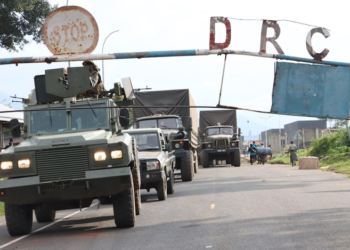By AL JAZEERA
Gang violence has eroded the rule of law and brought state institutions close to collapse, report finds.
More than 1,500 people have been killed in gang violence in Haiti so far this year, the United Nations Human Rights Office says.
Haiti’s gang wars have intensified in recent weeks with heavily armed rivals unleashing waves of attacks, including raids on police stations and the international airport. Prime Minister Ariel Henry announced his resignation on March 11.
“All these practices are outrageous and must stop at once,” UN High Commissioner for Human Rights Volker Turk said in a statement released on Thursday alongside a report describing the “cataclysmic” situation in the country.
The UN report documented 4,451 killings last year and 1,554 through March 22.
Some people have been killed in their homes in reprisal for their alleged support for the police or rival gangs. Others have been killed in the street by snipers or in crossfire, the UN report said.
The report also stated that dozens have been lynched by so-called self-defence brigades.
“Individuals accused of petty crime or suspected of association with gangs continued to be lynched, stoned, mutilated, or burned alive” by such brigades, it said.
Armed brigades filling a security void left by police lynched 528 people suspected of links to gangs last year and 59 so far this year, the UN Human Rights Office said.
The report also described rampant sexual violence, including women forced into exploitative sexual relations with gang members and rapes of hostages and of women after seeing their husbands killed in front of them.
“Corruption, impunity and poor governance, compounded by increasing levels of gang violence have eroded the rule of law and brought state institutions … close to collapse,” the report reads.
The recent surge in violence started when gangs joined forces, launched a coordinated offensive and demanded Henry resign.
Henry, who has led Haiti since the 2021 assassination of President Jovenel Moise, promised more than two weeks ago to step down after a transitional council is set up. However, forming the council has proved difficult due to disagreements among party leaders.
The report also mentioned that despite an international arms embargo put in place to stem the violence, a reliable supply of weapons and ammunition was flowing across Haiti’s “porous borders”.
It called for tighter national and international controls to stem the trafficking of weapons and ammunition to the Caribbean country.
“It is shocking that despite the horrific situation on the ground, arms keep still pouring in,” Turk said.
The report also called for an urgent deployment of a Multinational Security Support Mission to help Haiti’s police end the violence.
Kenya, which agreed to lead the long-awaited, UN-approved mission to Haiti, has put its plans on hold until the transitional council is in place.







Discussion about this post